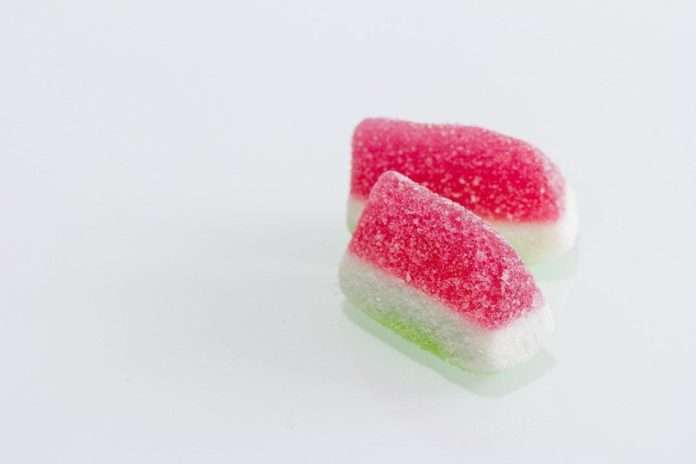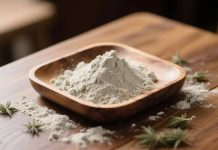With the popularity of CBD gummies and other products continuing to rise, it’s time we clear the air and offer a bit more clarity on the subject of gummies. While these impressive CBD-based edibles might be a popular trend right now, there’s a lot of misinformation floating around about both CBD and gummies themselves. Here, you’ll find a complete guide to CBD gummies, explaining everything from CBD and its origins to the effects of CBD gummies and more. Whether you’re a newbie to the CBD industry or an experienced gummy-eater, you’ll find useful and pertinent information on this popular product. In this article, you will know about A Complete Guide to CBD Gummies.
Table of Contents
What is CBD?
Before we start on gummies, we need to clarify what exactly CBD is. There seems to be some confusion in the popular opinion about CBD, often mistaking it for THC or confusing the two as the same compound with the same effects. Let’s make something clear: THC and CBD are two different compounds derived from the same plant. Hence the confusion!
Decades of negative press about the cannabis plant has led to the current state of stigma and misunderstanding, and even with the passing of the Farm Bill a few years ago (which effectively legalized the growth and cultivation of hemp and CBD oil at the federal level) there still seems to be a lot of false information about CBD gummies.
The cannabis plant is home to around 113 different cannabinoids, which are diverse chemical compounds that affect the body’s endocannabinoid system. This delicate neurological network is responsible for the response to stimuli and maintaining homeostasis in the body (things like body temperature). THC and CBD are among those 113, but Cannabidiol and Tetrahydrocannabinol do not produce the same effects in the body.
Federal Regulations and More
CBD has no psychoactive effects, so the euphoric “high” that users experience when using THC is non-existent. CBD does, however, produce a calming effect for such conditions as anxiety and depression, and makes for an excellent pain reliever; or so its users claim.
In order for hemp to be grown and cultivated for CBD products, it must contain less than 0.3% THC in order to be legal at the federal level. Any plant that contains more than 0.3% THC on a dry-weight basis is considered to be a controlled substance according to the CSA of 1971.
Full-Spectrum CBD Products
Products that contain CBD oil can be of two varieties, the first of which are full-spectrum CBD products. This simply means that the product contains the full spectrum of cannabinoids found in the cannabis plant, including THC. This means that there’s a chance the oil can have a psychoactive effect, and also that it might show up on a drug test.
If the product contains 0.3% or more THC, it’s also considered a controlled substance on the federal level. While several states have legalized both medical and recreational THC products, including marijuana itself, the federal government does not recognize this legalization and still considers anything over 0.3% illegal.
Broad-Spectrum CBD Products
On the other side of the market is broad-spectrum CBD. These products contain no THC (or very trace amounts, well below the 0.3% threshold), and are, therefore, considered to be legal at the federal level. These are the products you’ve probably seen advertised, as they’re legal in all 50 states as of 2020.
Companies like Verma Farms are among the top producers of broad-spectrum CBD gummies, simply because of the company’s commitment to using only the highest-quality ingredients. It’s important to consider this factor when you’re choosing a brand because anything less than the highest of quality is simply a waste of money!
Why Gummies?
You might be wondering why gummies are such a popular option for getting a dose of CBD, so here’s why. For starters, these little candies are much tastier than the tinctures that go under your tongue, or at least, popular opinion seems to think so. They’re sweet, chewable, and they’re absorbed through the digestive tract, which makes for slower release time and longer-lasting effects.
Tinctures are usually absorbed through the blood vessels under the tongue in just a few minutes, and the effects last about half as long as ingesting CBD gummies. Being more efficient, in some cases more affordable, and readily available, CBD gummies seem to be a favorite among new and seasoned CBD users alike.
The Bottom Line
CBD gummies are legal (provided they contain broad-spectrum CBD oil), safe, and readily available. Certain conditions are effected by CBD in a positive way, and generally, the effects of CBD oil are preferred to the effects of OTC or prescription medications. That’s not saying that CBD will replace any drug for health ailments, but it certainly shows a lot of promise in at least changing the way we treat things like chronic pain.


















